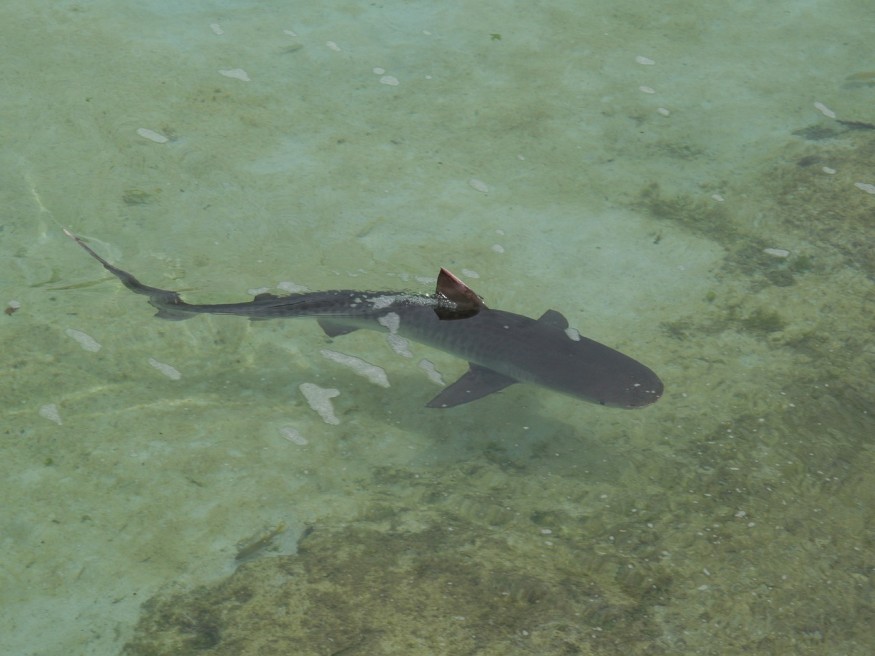An American tourist loses her foot after becoming a victim of a shark attack while snorkeling in the waters off the Turks and Caicos Islands earlier this week.
Reports indicated that the aggressive ocean predator was a Caribbean reef shark, which belongs to an endangered species of sharks native to the tropical waters of the western Atlantic Ocean.
The tourist survived and was taken to a nearby hospital.
The 22-year-old woman from Connecticut, United States, went to the Caribbean nation with her friend to celebrate her recent graduation from Yale University during the spring.
It is unclear if the attack was provoked or not but sources indicated that the shark mistook the woman to be another animal's prey.
For years, marine scientists and concerned experts in the field have maintained their stance that fatal shark attacks, or even shark encounters, in general, are rare.
However, they do still occur based on previously reported cases where either a victim sustains wounds or dies.
Related incidents are common, especially in shark-infested waters like waters off the Florida coast.
Shark Attacks American Tourist

The Connecticut woman, along with her friend, was snorkeling outside a resort near the Leeward Marina in the island of Providenciales just after 3:00 p.m. on Wednesday, May 24, according to the local police of Turks and Caicos Islands, as cited by NBC News reported.
A spokesperson of the Leeward Marina resort reportedly said the 22-year-old was not their guest but was a guest of another resort.
In fact, the police said the woman and her friend were on a private snorkeling activity with a tour charter company known as Big Blue Collective, according to Metro UK.
The incident specifically occurred at the Bone Yard dive site within Princess Alexandra National Park.
Also Read : Great White Shark Makes Mexican Diver Its Buffet, Making It The First Fatal Shark Attack of 2023
Caribbean Reef Sharks
The Caribbean reef shark (Carcharhinus pereziI) is commonly found in the Caribbean region.
Being an apex predator in their own local food web, C. perezil can grow from 6.5 to 10 feet long.
Due to their average features, they are often confused with other requiem sharks, according to the University of Florida's Florida Museum.
The said shark species also possess bizarre behavior such as "sleeping" in underwater caves and on the ocean floor, a habit which scientists cannot explain, according to the museum.
In terms of their habitat, the Caribbean reef shark mainly lives at coral reefs in the waters of the Caribbean and off South America.
They are also found in the tropical waters of North America and Central America, according to The MarineBio Conservation Society, which mentioned the said Caribbean shark's prey on bony fishes and potentially large marine invertebrates.
In the U.S., catching these sharks by commercial fishers is illegal.
However, they are allowed in other countries, the Florida University adds.
Caribbean Shark Attack Statistics
In addition to the U.S. and Australia, shark attacks are also relatively frequent in other parts of the world, including the Caribbean.
As of 2020, there have been a total of 34 unprovoked shark bites in the Caribbean since 2000, according to Tyler Bowling, manager at the Florida Program for Shark Research, during his statement to The Associated Press, as cited by CBS News.
Related Article: Shark Bites Tourist Diver Off Maldives [VIDEO]
© 2025 NatureWorldNews.com All rights reserved. Do not reproduce without permission.





